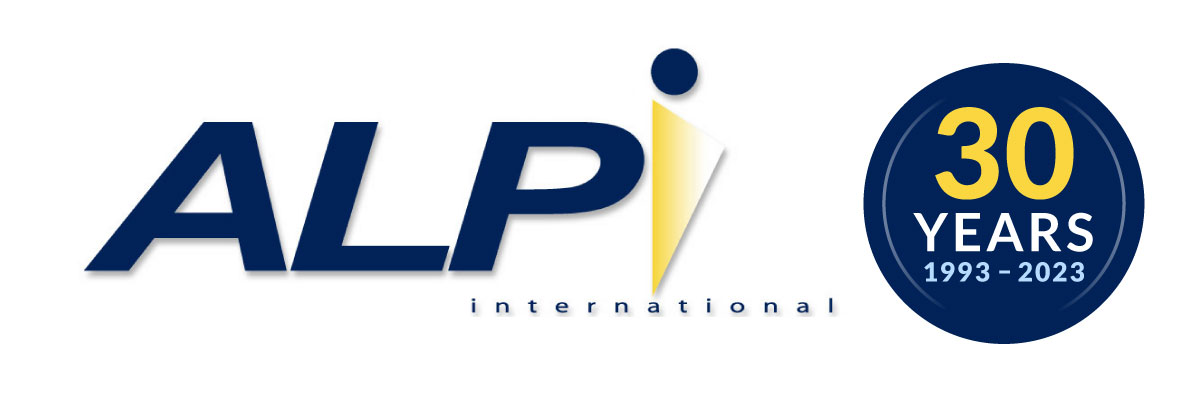Agile Testing—ISTQB Software Testing Certification Training
Course Description




Why choose ALPI for ISTQB Agile Testing certification training?
- ALPI's training is accredited by ASTQB, the U.S. Board for ISTQB certification, so you can be certain you are getting excellent training quality.
- We use certified live instructors in both our in-person and virtual classes so you can ask questions and get answers right away.
- We focus on real-world examples.
- We teach using interactive, hands-on exercises.
- This ALPI course is eligible for a free refresher guarantee so you can re-take the course within 4 months at no additional charge. Plus, if you meet the criteria, you could also re-take your exam for free. Contact us for information about this unique benefit that gives you peace of mind.
The ISTQB Agile Testing Foundation Certificate Course is a two-day course explaining the fundamentals of testing on agile projects. This course is accredited by ISTQB and addresses the ISTQB Foundation Level Agile Testing Syllabus.
The course includes exercises and practice exams to highlight key aspects of the syllabus and to help participants understand and practice the concepts and methods presented.
This course provides participants with the knowledge and skills necessary to become an effective member of an Agile team. Explains the fundamentals of testing on Agile projects including commonly used Agile development practices and processes. Describes how to organize and estimate testing and how to apply risk-based testing on Agile projects, and outlines the important testing and test-related tools typically used on Agile projects. We suggest that attendees hold the ISTQB Foundation Level certificate, especially if they intend to take the ISTQB Agile Tester exam, but non-certificate holders can also benefit from this course.
By the end of this course, an attendee should be able to:
- Collaborate in a cross-functional Agile team being familiar with principles and basic practices of Agile software development.
- Adapt existing testing experience and knowledge to Agile values and principles.
- Support the Agile team in planning test-related activities.
- Apply relevant methods and techniques for testing in an Agile project.
- Assist the Agile team in test automation activities.
- Help business stakeholders define understandable and testable user stories and acceptance criteria.
- Work and share information with other team members using effective communication styles and channels.
- For participants attending class remotely (Virtual Live), the exam can be scheduled online from home/office or by visiting a test center. Visit ISTQB Online Exam Information and Locate a Test Center for details.
- For participants attending class in Chevy Chase, MD, the exam will be administered on last day of class, ending by 5pm, so please plan your travel accordingly.
Duration
2 day(s)Time
9 - 5 ETPrice
$1,350Labs
Exercises reinforcing Learning Objectives help to understand and apply topics in the course.
Intended Audience
The target audience for this course includes:- Software testers
- Senior testers
- Test analysts
- Test leads
- Managers including test managers, project managers, quality managers
Prerequisites
You must have obtained an ISTQB Foundation Level Certification (CTFL) to be eligible for the Agile Testing Certification.Prior to attending class please download and review the following document: Agile Tester Syllabus
Outline
Agile Software Development
- The Fundamentals of Agile Software Development
- Agile Software Development and the Agile Manifesto
- Whole-Team Approach
- Early and Frequent Feedback
- Aspects of Agile Approaches
- Agile Software Development Approaches
- Collaborative User Story Creation
- Retrospectives
- Continuous Integration
- Release and Iteration Planning
Fundamental Agile Testing Principles, Practices, and Processes
- The Differences between Testing in Traditional and Agile Approaches
- Testing and Development Activities
- Project Work Products
- Test Levels
- Testing and Configuration Management
- Organizational Options for Independent Testing
- Status of Testing in Agile Project
- Communicating Test Status, Progress, and Product Quality
- Managing Regression Risk with Evolving Manual and Automated Test Cases
- Role and Skills of a Tester in an Agile Team
- Agile Tester Skills
- The Role of a Tester in an Agile Team
Agile Testing Methods, Techniques, and Tools
- Agile Testing Methods
- Test-Driven Development, Acceptance Test-Driven Development, and Behavior-Driven Development
- The Test Pyramid
- Testing Quadrants, Test Levels, and Testing Types
- The Role of a Tester
- Assessing Quality Risks and Estimating Test Effort
- Assessing Quality Risks in Agile Projects
- Estimating Testing Effort Based on Content and Risk
- Techniques in Agile Projects
- Acceptance Criteria, Adequate Coverage, and Other Information for Testing
- Applying Acceptance Test-Driven Development
- Functional and Non-Functional Black Box Test Design
- Exploratory Testing and Agile Testing
- Tools in Agile Projects
- Task Management and Tracking Tools
- Communication and Information Sharing Tools
- Software Build and Distribution Tools
- Configuration Management Tools
- Test Design, Implementation, and Execution Tools
- Cloud Computing and Virtualization Tools
